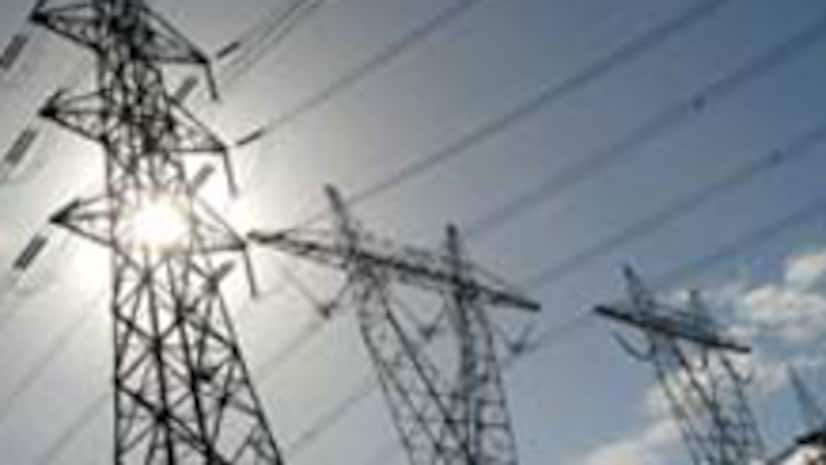Resistance Mounts: Car Dealers Renew Opposition To EV Mandates

Table of Contents
Financial Concerns and Infrastructure Limitations
The transition to an EV-centric market presents substantial financial hurdles for car dealerships. These challenges stem from both the high initial investment costs required for EV servicing and the current lack of sufficient EV infrastructure and consumer readiness.
High Initial Investment Costs
Dealerships face significant expenses upgrading their facilities to service electric vehicles effectively. This includes substantial investments in specialized tools and training.
- Expensive equipment for battery diagnostics and repair: Specialized diagnostic equipment and tools are needed to identify and repair EV batteries, a costly investment for dealerships.
- Need for certified EV technicians: Training existing mechanics and hiring certified EV technicians requires significant financial resources and time commitment.
- Significant investment in fast-charging stations: Installing fast-charging stations on dealership premises requires considerable capital investment and ongoing maintenance. The cost of electricity alone can be substantial. Dealerships also face challenges in integrating these charging stations into their existing infrastructure.
Lack of EV Infrastructure and Consumer Readiness
The insufficient availability of public charging stations and persistent consumer hesitancy towards EVs further exacerbate the financial challenges for dealerships.
- Range anxiety remains a significant concern for many potential EV buyers: Fear of running out of battery charge before reaching a charging station remains a significant barrier to EV adoption.
- Uneven distribution of charging stations, particularly in rural areas: The lack of adequate charging infrastructure in many regions limits the appeal of EVs for potential buyers in those areas. This impacts sales potential and necessitates long-range planning for charging access on sales routes.
- Concerns over charging times compared to refueling ICE vehicles: The longer refueling times associated with EVs compared to internal combustion engine (ICE) vehicles deter some consumers, affecting overall sales and impacting dealership revenue streams.
Concerns Regarding Inventory and Sales Strategies
The shift to EVs requires dealerships to adapt their sales models, expertise, and inventory management strategies, all of which present significant challenges.
Shift in Sales Models and Expertise
Dealerships are accustomed to the sales and service model of ICE vehicles. The transition to EVs necessitates significant changes in sales strategies, training, and inventory management.
- Need for specialized sales training on EV features and benefits: Sales staff require specialized training to effectively communicate the unique features, benefits, and operational aspects of EVs to potential buyers.
- Different inventory management requirements for EVs: EVs have different storage and handling requirements compared to ICE vehicles, impacting dealership logistics and operational efficiency.
- Uncertainty about the long-term demand for EVs: The unpredictable nature of future EV demand creates uncertainty about the optimal level of EV inventory to maintain, potentially leading to overstocking or shortages.
Impact on Profit Margins
Many dealerships are concerned about lower profit margins on EV sales compared to traditional vehicles. This creates a significant obstacle to profitability in the transition.
- Reduced servicing revenue due to simpler EV mechanics: EVs have fewer moving parts than ICE vehicles, leading to reduced servicing needs and consequently lower revenue streams for dealerships.
- Competitive pricing pressures in the EV market: The competitive nature of the EV market, particularly with the emergence of new EV-focused manufacturers, puts downward pressure on profit margins.
- Uncertainty around future government incentives and subsidies: The fluctuating nature of government incentives and subsidies for EVs creates instability and makes it difficult for dealerships to plan their EV sales strategies effectively.
Political and Regulatory Uncertainty
The rapidly changing regulatory landscape surrounding EV adoption creates significant uncertainty and challenges for dealerships.
Rapidly Changing Regulations
The constant evolution of emission standards and regulations makes long-term planning and investment decisions extremely difficult for dealerships.
- Uncertainty about future emission standards and regulations: The unpredictable nature of future emission standards and regulations makes it challenging to plan long-term investments in EV infrastructure and training.
- Variations in EV mandates and incentives across different states and countries: The lack of standardization in EV mandates and incentives across different jurisdictions creates further complications for dealerships operating in multiple regions.
- Difficulty in adapting business strategies to rapid legislative changes: The pace of legislative changes related to EV adoption makes it difficult for dealerships to adapt their business strategies and investment plans effectively.
Lobbying Efforts and Political Influence
Dealerships are actively involved in lobbying efforts against stringent EV mandates, emphasizing the negative consequences for their businesses and the broader automotive industry.
- Industry associations are leading efforts to influence policy decisions: Major automotive industry associations are playing a key role in lobbying efforts to influence EV policies.
- Arguments focusing on economic viability and consumer choice: Dealerships are advocating for policies that consider the economic realities of the transition and prioritize consumer choice.
- Concerns about job losses in the ICE vehicle sector: Dealerships raise concerns about the potential job losses in the ICE vehicle sector as a result of rapid EV adoption.
Conclusion
The resistance to EV mandates from car dealers underscores the complexities of transitioning to a sustainable transportation future. Financial concerns, infrastructural limitations, and regulatory uncertainties pose substantial hurdles for dealerships. Policymakers must acknowledge these challenges to create effective EV adoption strategies that support the automotive industry's needs. Ignoring the concerns of dealerships could hinder widespread EV acceptance. Collaboration and innovative solutions are essential for successful EV mandate implementation and a sustainable automotive future. We need to continue monitoring this critical discussion as the debate over EV mandates and their impact on the industry continues to evolve. Stay informed about the evolving landscape of electric vehicle adoption and its effects on the future of car dealerships.

Featured Posts
-
 Albertas Oil Industry And The Anti Trump Divide In Canada
Apr 27, 2025
Albertas Oil Industry And The Anti Trump Divide In Canada
Apr 27, 2025 -
 Dows Canadian Construction Project Delayed Impact Of Market Volatility
Apr 27, 2025
Dows Canadian Construction Project Delayed Impact Of Market Volatility
Apr 27, 2025 -
 March 12 Power Finance Corporation To Announce Fy 25 Fourth Dividend
Apr 27, 2025
March 12 Power Finance Corporation To Announce Fy 25 Fourth Dividend
Apr 27, 2025 -
 La Fires Fuel Landlord Price Gouging Controversy A Selling Sunset Star Speaks Out
Apr 27, 2025
La Fires Fuel Landlord Price Gouging Controversy A Selling Sunset Star Speaks Out
Apr 27, 2025 -
 Charleston Open Pegula Upsets Defending Champion Collins
Apr 27, 2025
Charleston Open Pegula Upsets Defending Champion Collins
Apr 27, 2025
